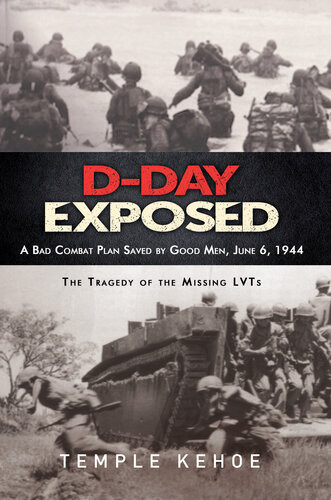

Most ebook files are in PDF format, so you can easily read them using various software such as Foxit Reader or directly on the Google Chrome browser.
Some ebook files are released by publishers in other formats such as .awz, .mobi, .epub, .fb2, etc. You may need to install specific software to read these formats on mobile/PC, such as Calibre.
Please read the tutorial at this link: https://ebookbell.com/faq
We offer FREE conversion to the popular formats you request; however, this may take some time. Therefore, right after payment, please email us, and we will try to provide the service as quickly as possible.
For some exceptional file formats or broken links (if any), please refrain from opening any disputes. Instead, email us first, and we will try to assist within a maximum of 6 hours.
EbookBell Team

5.0
68 reviewsYet, until now some very fundamental questions about the nature of the D-Day Combat Plan have remained hidden and unchallenged. One of the most obvious of these questions is:
Why did the largest "amphibious" invasion in human history fail to use the available armoured amphibious technology and combat experience that would have changed the course of the Normandy invasion (and WW2 in Europe) and saved so many lives?
The Allied invasion of Normandy on D-Day June 6, 1944 is one of the most widely written about wartime assaults in history. It still is the most complex "amphibious" invasion in human history. It was the culmination of 4 years of planning by the Allied High Command. The sacrifice and bravery of the landing troops who were slaughtered in their thousands is remembered to this day with reverence, respect and sadness. Yet much of this loss of life was unnecessary.
In this controversial book, the first in a series on D-Day, the author Temple Kehoe provides irrefutable evidence that the D-Day invasion plan was an incompetent combat plan that failed to use the available amphibious invasion technology and experience that could have changed the course of the war. The author shows how even as late as April 1944 this could have been fixed. But instead, D-Day was saved by the bravery and resilience of the combat troops, so many of whom died unnecessarily on that day and the days that followed before World War 2 was finally won.